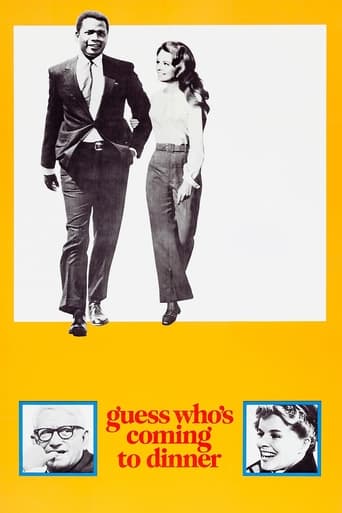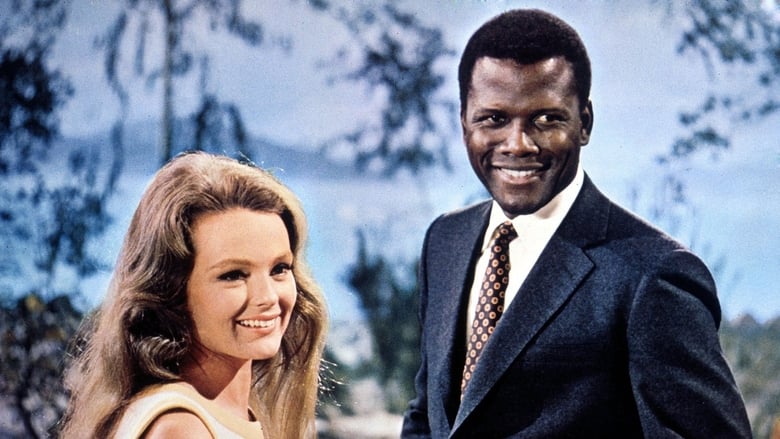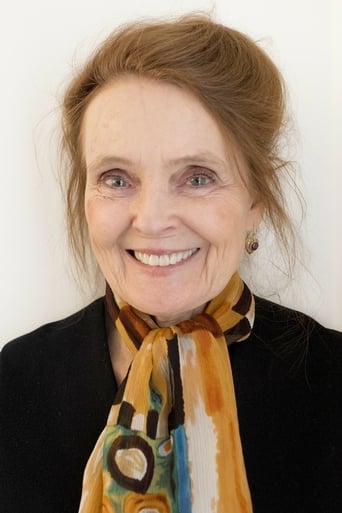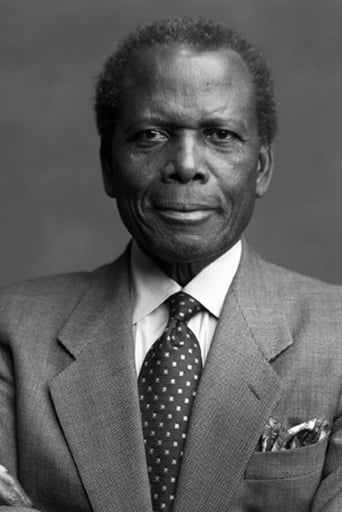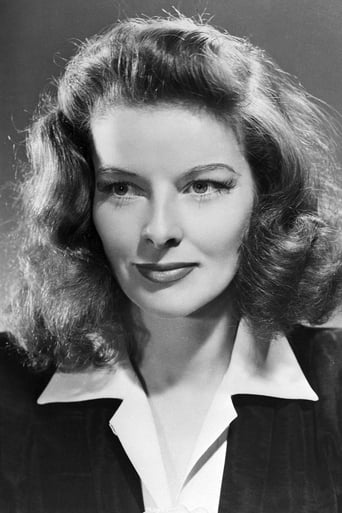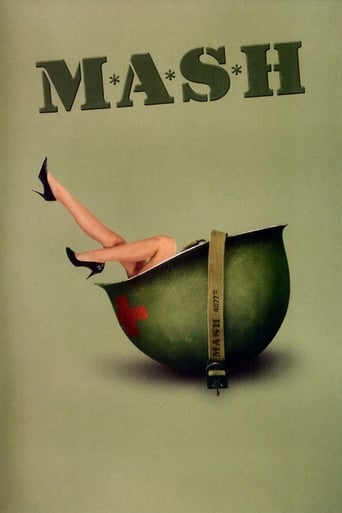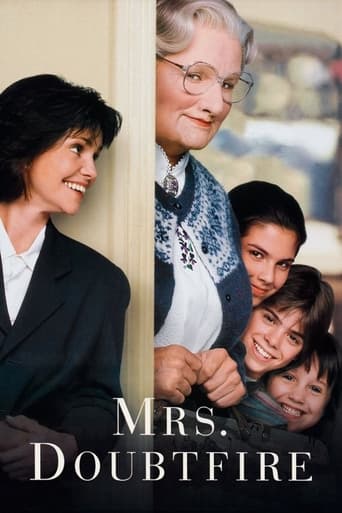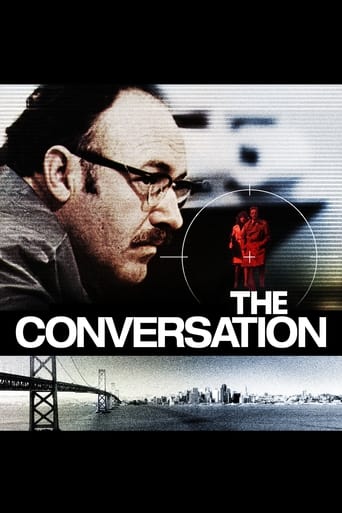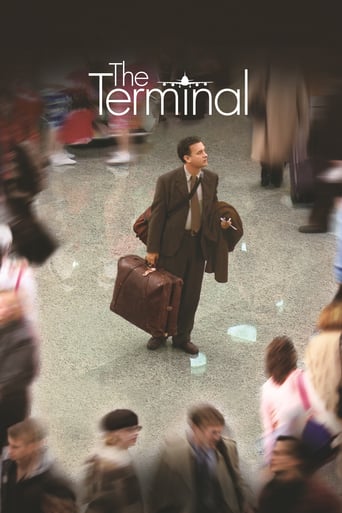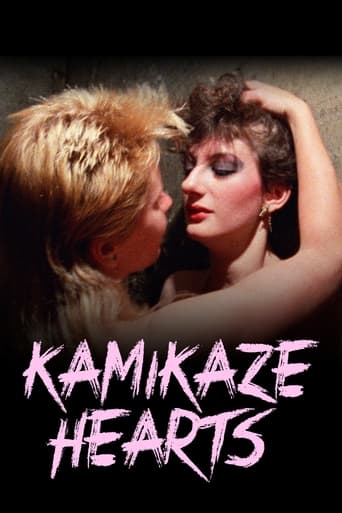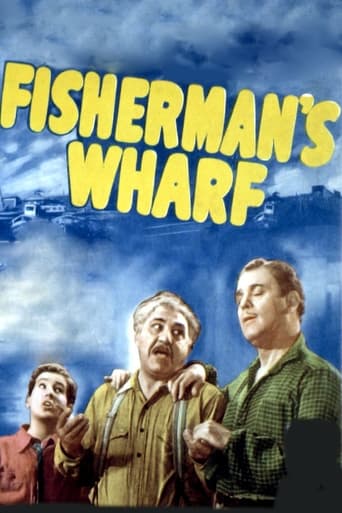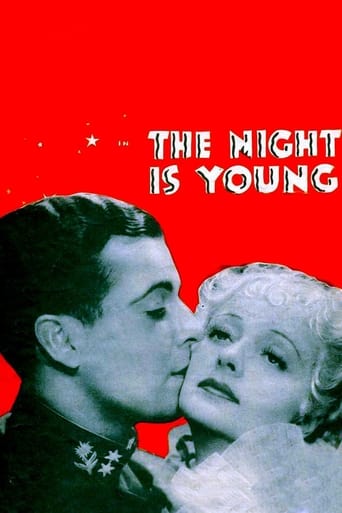Guess Who's Coming to Dinner (1967)
A couple's attitudes are challenged when their daughter brings home a fiancé who is black.
Watch Trailer
Cast


Similar titles
Reviews
Travelling back to 1967 we find a film that tackles the issue of race and interracial marriage at a time when attitudes were starting to change, but perhaps not fast enough. This is still a prevalent theme in films, most recently explored in 'Get Out' directed by Jordan Peele, which starts pretty much in the same way as 'Guess Who's Coming to Dinner?', but which takes a much darker turn. However, the best genre for exploring these issues is comedy-drama, which is what 'Guess Who's Coming to Dinner?' is, as this enables the arguments and discussions had by the various characters to be shown and to evolve, as well as to lay their prejudices and beliefs open for us to laugh at, but also in many ways recognise. The simple beauty of this film is that it is allowed to be, there isn't any external pressure on it to throw in plot twists and excitement; it is simply a two-hour discussion on the topic of racism and interracial marriage. However, it has such engaging and genuine characters that it is an enjoyable discussion, and never really gets dull. The plot is also really simple, which as I have stated, works as strength, rather than a weakness. 23-year-old Joanna 'Joey' Drayton, returns home to San Francisco, after a holiday in Hawaii, to introduce her parents to her fiancé, 37-year-old academic Dr John Prentice, whom she met while she was there, only 10 days earlier. There is only one problem: he is black and she is white. The simplest of set-ups makes for a wonderful character study, and for exploring the issues of acceptance being pushed to its limit. Because nobody in this film is an actual racist. Joey's parents, Christina and Matt (played brilliantly by Katherine Hepburn and Spencer Tracy), are nice, middle-class, liberal people who brought their daughter up to believe that the colour of a person's skin should not make a difference as to how you treat them, and Joey is certain that her parents will not raise any objections to her choice of husband. John, however, is a little more sceptical, knowing how racism is much more deeply embedded than just what a person believes politically. Therefore, John decides that he will only marry Joey if her parents give their blessings whole-heartedly, and without any reservations, but they have only until that evening to decide as he is flying out to New York that night, and then on to Geneva to lecture at the World Health Organisation, where Joey will join him and they will be married. This plot device is a little weak, as it creates a false sense of tension about whether the parents will bless the marriage or not, and it steers the debate in a definite direction, rather than letting it flow naturally. Despite this the issues are tackled incredibly well for a '60s film, with a real sense of hypocrisy shown to be the main problem rather than just open racism. As I said, Joey's parents are all for black equality until their daughter confronts them with her black fiancé, which takes them aback a little, especially Mr Drayton. They have a black maid called Tilly, who brought Joey up, which harkens back to the days of slavery, especially as even the assistant housekeeper, Dorothy, is a young black woman. However the message of the film does appear to be that racism is only something that the older generation experience, as the young people in the film don't seem to be aware there is a problem: Joey can't think that her parents could take issue with her marriage, her fashionable friends, Peter and Judith, are only pleased for her, and don't even mention the colour of John's skin, and the aforementioned Dorothy's (implied) boyfriend is a white delivery boy. Indeed, this gives a strange sense of optimism to the film, that when the older generation are dead and buried, issues regarding race will be a thing of the past. The only people who believe there is a problem are the older people: Joey's parents, the maid Tilly, who thinks Dr Prentice is getting above himself, Mrs Drayton's colleague at the Art Gallery she runs who is appalled at the idea of intermarriage, and John's parents who are typical working-class black people, and think the whole idea is ridiculous. The only older person who breaks this mould is the Irish Catholic priest, Mike, who heavily supports the idea of them being married; because he believes having to fight the prejudice that will follow them will bring them closer together. In fact, the only real obstacle are the fathers of the couple, especially Joey's father, who doesn't object on racist grounds, but on the grounds that he doesn't want his daughter to have all the trouble that such a marriage could cause. As I have said, the characters are also a real strength of this film as they are 3- dimensional and not caricatures, a trap this movie could easily have fallen into. Joey is optimistic and naïve, yes, but at the same time she genuinely loves John, and there is almost a sense that she knows there is a problem, but is trying to ignore it. Dr John Prentice, played excellently by Hollywood's then token black star Sidney Poitier, is noble and dignified, and intelligent, who knows more about the race issue than his bride-to-be, but is also funny and playful. He can also be pushed to his limit, making him very human and not just a 2-D cut-out for the debate to be focused on, and the relationship between him and Joey feels very loving and real. Joey's parents are also loving, both to each other and their daughter, which makes the drama when something comes between them genuinely compelling. Hepburn plays the mother as a woman who struggles with this issue herself, but is determined to accept it to make Joey happy, but who must also fight with her husband, who isn't as accepting as her; Tracy also does a sterling job as the father who just wants what's best for his daughter, and believes she has made a massive error of judgement. The way he makes throwaway racist comments, without meaning any harm, is also very clever and reveals a lot about how racism isn't based on hate but on ignorance. It is also a comedy and so it does have some very funny moments and dialogue, which makes us stop and look at ourselves and our own attitudes towards race. It is a very warm, optimistic film, perhaps a little naïve at times, but cleverly makes the whole situation about love not hatred, and has an incredibly modern feel to it. Of course it does have its flaws, the '60s vibe and references do feel a little dated and laughable now, which is to be expected, but personally I feel they do add a charm to the film, which makes it enjoyable to watch, even if it does occasionally make you cringe. Also as I have said before, the plot device of the marriage only being able to go ahead if Joey's parents agree is a little misguided as it then makes the film more about trying to persuade Mr Drayton to bless the marriage before the day is over, than about the characters' reactions to this news, and it makes the second half of the film drag a little. The last scene is also a little slow, despite the fact it is supposed to be the climax of the entire debate, as Joey invites John's parents to dinner over the phone, when he hasn't told them his fiancée is white, and they all have to sit down together, but it just seems to drag as they all just re-discuss and recycle everything they've already said, and the ending does feel a little anti-climactic. Also there is a strange backstory that John had been married before but lost his wife and son in an accident, which has no bearing on the story and is never really raised again. The word 'negro' is also bandied about a bit too much for a modern audience to be comfortable with, and the 'n' word is said once, only by the black maid, but considering a white person wrote the script, it's enough to make you shudder. Apart from this though, it is a very well-written film that feels startlingly modern in the way it handles the 'race-issue', whose message is of course that black people should be treated as people, not black people, which is shown through the representation of John and Joey's parents being almost parallel versions of each other, suggesting that we are all the same underneath the skin. It avoids being stereotypical in the way it deals with the issues raised, and the characters avoid being 'types' or caricatures, and above all it is a brilliant family drama that also explores the relationships within families, and how nobody behaves perfectly when pushed to their limits. Overall, a film that still remains relevant today and handles the debate it sets up sensitively and with an optimistic outlook that things will improve, as long as the younger generation from both races continue to break down the barriers previous generations have set up.
" . . . will your dead weight be off our backs!" Sidney Poitier pointedly challenges the Trumpster Cohort, with their Deplorably Racist "Birther" Lies which allowed Red Commie KGB Chief Vlad "The Mad Russian" Putin to Rig the 2016 Election in about 3,000 backwater U.S. Counties still stuck in the Stone Age emotionally. GUESS WHO'S COMING TO DINNER closely parallels Barack Obama's Hawaiian Origins between a White Mom and a Black Daddy, with this exact combination of Romantic Setting and Breeding sure to produce a U.S. President, DINNER confidently (and accurately) predicts in so many words about 20 minutes into this movie. With one foot in the grave (he died before DINNER could be served to the American Public), Spencer Tracy forecasts that there will STILL be 100 million American Neanderthals Ruling the Roost in Our Homeland 50 years following his after DINNER speech. Obviously, Poitier is far too optimistic in his quote made at the top here. The Racist Confederate Traitor Descendants and their Fellow Traveler Ilk MUST either self-deport or be removed ASAP North to Canada for a Seven-Generation Cooling Off Period, AFTER surrendering ALL of their ill-gotten weapons, real estate, and other assets, the pool of which will be divvied up for Reparations and to settle the National Debt, for which they're 99% responsible.
I like Sidney Poitier and I think he is a great actor but the direction he got for this movie was the worst. The plot is simple stilted and contrived. Spencer Tracy and Katharine Hepburn act like they are has been's. This is like a one scene high school stage play. Very boring. This is not a classic time enduring play. It was out dated when it was produced. The most famous scene where Sidney Poitier faces off dad, Spencer Tracy, is so over acted, dramatised that and staged it looses reality. Actually the worst Act in a three act high school play. Dumb and dumber. I could go on and on but the movie isn't worth it and the Screen Actors' Guild should be ashamed of the movie.
All I can say about this movie is that it is alright. Its well made and well acted throughout the movie and pretty entertaining. This movie is about a black man trying to marry a white woman. Because of this this movie has historical significance and a really meaningful meaning. This was an entertaining enough movie to recommend to others but it is nothing majorly special where I would tell someone that they have to go out and see it. I would also say its more of a one time watch because I don't think that it is worth watching more then once. Even though this is historically significant I still wouldn't say its something you need to go rush and see unless you're really into that kind of history.

